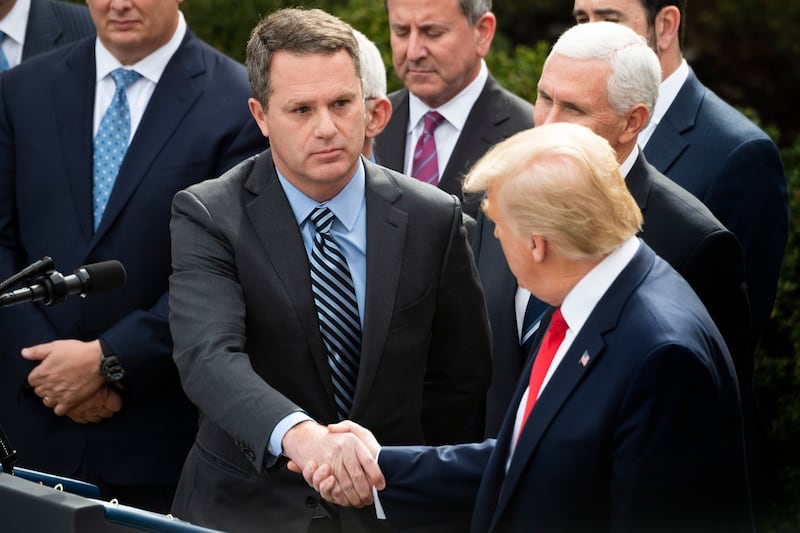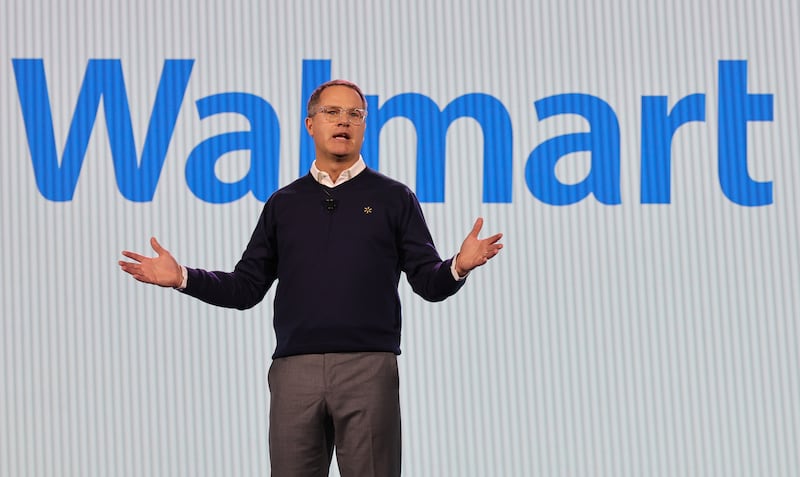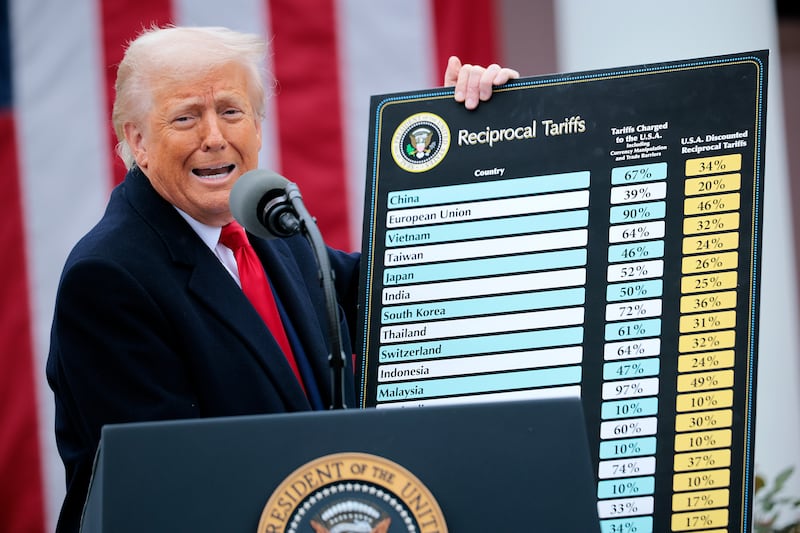Walmart’s CEO has risked a White House rebuke by warning that the retail giant has no choice but to hike its prices because of President Donald Trump’s tariffs.
Doug McMillon said Thursday during an earnings call that the business is feeling the squeeze of Trump’s so-called Liberation Day levies, even after they were reduced. Another executive said during the call that about a third of Walmart’s U.S. stock comes from outside the country, with China, Mexico, Canada, Vietnam, and India its largest markets for imports.
All of these countries have been hit by Trump’s tariffs. That means Walmart must pay more for its stock, with the company no longer able to foot the bill for the duties.
“We will do our best to keep our prices as low as possible. But given the magnitude of the tariffs, even at the reduced levels announced this week, we aren’t able to absorb all the pressure given the reality of narrow retail margins,” McMillon said, according to CNN.
“The higher tariffs will result in higher prices,” he added unequivocally. Walmart shares dipped 1.2 percent after the announcement. The retailer is seen as a bellwether of U.S. consumer health.
Inflation was down slightly from March’s 2.4 percent rate, falling to 2.3 percent in April. However, prices have surged 0.2 percent month-on-month as Trump’s tariff war—launched in April—takes effect.

The Federal Reserve, chaired by Trump target Jerome Powell, reported the real effect on consumers is a 0.3 percent increase in prices this year. The Yale Budget Lab, a university research organization, said that means the average consumer would pay $2,800 more for products this year compared with 2024.
Tariffs on China have hit the hardest, with the prices of electronics and toys leaping. “Maybe the children will have two dolls instead of 30,” Trump said when asked if his tariffs might lead to a supply-chain shortage at Christmas.
The U.S. and China had been in a tit-for-tat tariff war since “Liberation Day” in early April. Trump slapped levies of 145 percent on Chinese imports. In retaliation, China imposed a minimum 125 percent tariff on U.S. goods.
The countries have since agreed to a 90-day pause on those duties. The figure has, for now, fallen to 30 percent on Chinese goods, and 10 percent on goods entering the Asian country from the U.S.

As a result, the S&P 500 ticked higher on Thursday. The Nasdaq lost 0.3 percent, while the Dow Jones Industrial Average gained 0.3 percent.
Even so, McMillon said Walmart will still need to raise the prices of some of its products. The company earned $4.45 billion in the quarter that ended on April 30, down from $5.1 billion in the same period last year. However, the retailer surpassed quarterly earnings expectations and stuck by its full-year forecast—a sales leap of between 3 percent and 4 percent.
Walmart also communicated that it expects net sales to increase 3.5 percent to 4.5 percent for the second quarter of 2025.
Levies on Costa Rica, Peru, and Colombia have hit food costs, McMillon said. The prices of bananas, avocados, coffee, and roses have risen as a result. His finance chief, John David Rainey, told CNBC on Thursday that the price change will become apparent soon.
“I’m concerned that consumer is going to start seeing higher prices. You’ll begin to see that, likely towards the tail end of this month, and then certainly much more in June,” he said.
Tariffs are “still too high,” Rainey complained. “We’re wired for everyday low prices, but the magnitude of these increases is more than any retailer can absorb.”
Despite Trump’s walk-back on super-charged levies, economists warn that most of the impact of the import duties is still in the future, according to the Financial Times.

Rainey said the company is working with vendors to keep prices at a lower level but added that “this is a little bit unprecedented in terms of the speed and magnitude in which the price increases are coming.”
Walmart is “well positioned to manage tariffs,” Bank of America analyst Robert Ohmes said this week.
The company has also started buying in less of what it thinks people might avoid shelling out for because of the tariff-hit price.
The narrative from Walmart executives could put the company in the White House’s crosshairs. Jeff Bezos felt that wrath last month after Punchbowl News reported that Amazon intended to roll out pricing that showed “how much Trump’s tariffs are adding to the price of each product.”
Bezos quickly walked the plan back after a stern rebuke from the White House, which included Trump’s firebrand press secretary Karoline Leavitt calling the plans “a hostile and political act.”






